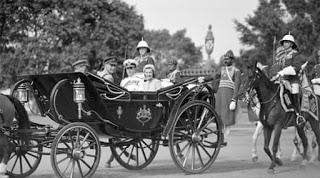And Lied About It It is said that the West rose to predominance because of integrity of its institutions, that through the law, and the honesty it brought, commerce could flourish. Carl Jung believed the Christian religion made the West strong, because people for the first time could leave their money in banks, or invest in companies, rather than leave money under the bed, and then come back the next day and get their money back - people were now God fearing Christians. But what if what made the West strong was the looting of the rest of the world, nothing else? Rather than honesty, it was theft on grand scale.Something similar happens today, but they call it Democracy, Freedom, Capitalism, and Free Markets instead. Once a country opens itself up to the Western values and
Topics:
Mike Norman considers the following as important:
This could be interesting, too:
Robert Vienneau writes Austrian Capital Theory And Triple-Switching In The Corn-Tractor Model
Mike Norman writes The Accursed Tariffs — NeilW
Mike Norman writes IRS has agreed to share migrants’ tax information with ICE
Mike Norman writes Trump’s “Liberation Day”: Another PR Gag, or Global Reorientation Turning Point? — Simplicius
And Lied About It
Something similar happens today, but they call it Democracy, Freedom, Capitalism, and Free Markets instead. Once a country opens itself up to the Western values and democracy, the Western elite go into that country try to buy everything up. Instead of using armies and colonialism, the West uses finance instead to control everything in the World. (Okay, I will concede, it's better than bullets).
A one-world system would be fine, if it was for the people and by the people, but the game is rigged and the tables are tilted. It's not really a democracy, but an oligarchy.
The only way a country can resist Western financial colonialisation (the new imperialis) is to become a dictatorship, like Cuba or China, or to become a partial authoritarian state, like Russia or Iran. If a country truly becomes open and democratic, the West will swoop in to buy the lot. Then a very small section of the ruling elite will own virtually everything in the world.

